Numancia es uno de esos hitos de la Historia Antigua de nuestro país que ha llegado a convertirse en un símbolo de resistencia frente al invasor romano aunque no fue la única ocasión en la que los habitantes celtibéricos mostraron su tenacidad a la hora de enfrentarse a Roma.
El relato que hizo Apiano en la parte dedicada a Iberia de su Historia Romana y sobretodo el romanticismo decimonónico ensalzaron la resistencia de Numancia, pasando por el Siglo de Oro durante el cual el propio Miguel de Cervantes escribió su tragedia “El Cerco de Numancia”.
Numancia, por Alejo Vera Estaca (1880)
Índice
Esta fama y los sentimientos nacionalistas que ha despertado en las últimas décadas han convertido a Numancia en un signo patriota. Esto ha llevado a interpretaciones muy libres de los sucesos y a la invención de muchos datos que no tienen ningún respaldo histórico, de la misma forma que ha ocurrido con el lusitano Viriato o el cántabro Corocotta.
Y hablando de nombres propios, son pocos los que conocemos entre los pueblos celtibéricos pero en el caso de Numancia han llegado a nosotros concretamente los nombres de seis jefes celtíberos gracias a las fuentes clásicas. En este artículo hablaré de ellos con el mayor rigor posible, ciñéndome a lo que nos cuentan los escritores grecorromanos y dejando a un lado las interpretaciones interesadas. No es mi intención hacer ningún tipo de revisionismo histórico sino presentar los datos tal y como los tenemos en las fuentes.
Fue elegido por numantinos y segedenses para liderar a los guerreros. Según Apiano era tenido por belicoso así que quizá fue esa la razón de su elección. La gran hazaña de Caro fue la de acabar con la vida de 6.000 soldados romanos aunque falleció ese mismo día al ser alcanzado en una persecución algo desorganizada.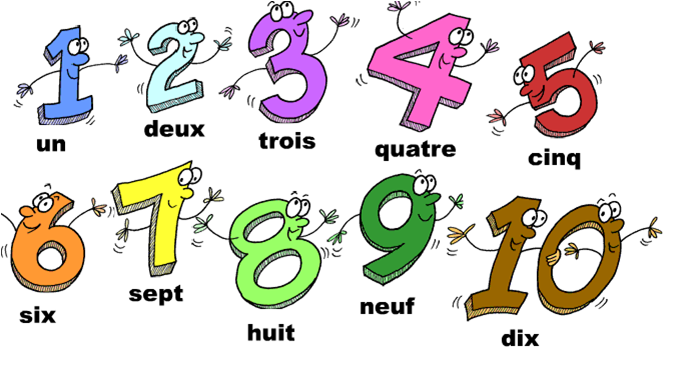 Ese día fue el 23 de agosto, considerado nefasto por los romanos desde aquellos hechos.
Ese día fue el 23 de agosto, considerado nefasto por los romanos desde aquellos hechos.
Unifico a estos dos nombres ya que lo único que sabemos de ellos es que fueron los dos jefes elegidos por los arévacos para sustituir a Caro tras su muerte.
Pidió la paz a Claudio Marcelo poniendo a su disposición a los belos, titos y arévacos. El general romano aceptó y pidió rehenes a los que liberó posteriormente.
Según Apiano se le conocía con el apodo de El Caraunio. Este nombre ha sido objeto de diversas interpretaciones. Una de ellas, la más aceptada, es la de Wilhelm von Humboldt quien expuso que viene de gara -alto- y unea -país o tierra-, es decir, que vendría a significar “el de las tierras altas”. Junto a otros jóvenes de Numancia, superó el cerco impuesto por Escipión a la ciudad para acudir a Lutia y pedir ayuda. Los ancianos advirtieron a Escipión quien castigó a los jóvenes de la ciudad cortándoles la mano derecha.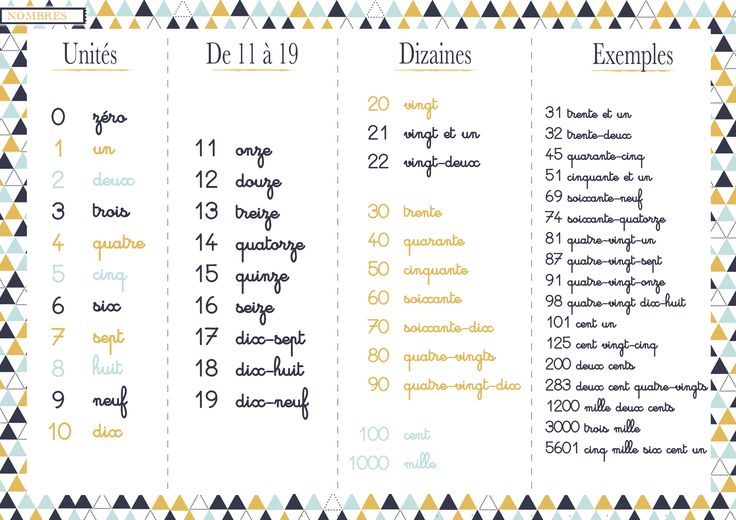 Retógenes, sin la ayuda necesaria, regresó a Numancia donde acabó suicidándose junto con los jóvenes que le siguieron.
Retógenes, sin la ayuda necesaria, regresó a Numancia donde acabó suicidándose junto con los jóvenes que le siguieron.
Este jefe es nombrado por haberse atrevido a plantear condiciones de paz a Pompeyo tras engañarle con una hábil estrategia en la que, tras hacerle creer que los celtíberos se retiraban, provocó que numerosos soldados romanos cayeran en trampas instaladas alrededor de Numancia.
Inscripción en el monumento de Numancia (imagen de celtibericahistorica.com)
Analizando los pocos datos que tenemos acerca de estos caudillos se puede ver la confirmación de dos costumbres sociales muy conocidas entre los pueblos celtibéricos: la elección de los jefes por parte de una asamblea, como por ejemplo en el caso de Caro, y la devotio, ésta última deducida del episodio de Retógenes, quien quizá se hizo acompañar de aquellos que le habían jurado lealtad y que, por tanto, se dieron muerte al mismo tiempo que él cuando éste decidió acabar con su vida.
Hoy día, pocos de estos nombres resuenan ya y el eco del pasado se hace cada vez más débil, aunque somos muchos los que aún insistimos en darles voz de nuevo. Y allí, en Numancia, en la tierra bañada con la sangre de estos caudillos, se eleva un monumento en su memoria para evitar el olvido. Consiste en un obelisco inaugurado en 1905 por Alfonso XIII; en uno de sus laterales y rodeados por una corona de laurel, aparecen los nombres de los héroes de Numancia: “Ambón, Leukón, Litennon, Megara y Retógenes”.
JIMENO MARTINEZ, A. (2005), Numancia, símbolo e historia. Ediciones Akal
APIANO (2006) Guerras Ibéricas. Aníbal. Alianza Editorial (trad. Gómez Espelosín, F.J.)
Sin comentarios
Suscríbete a Bebés y más
Karmen Pascual
@@aylakarmela
Las opciones de nombres para niñas son incontables.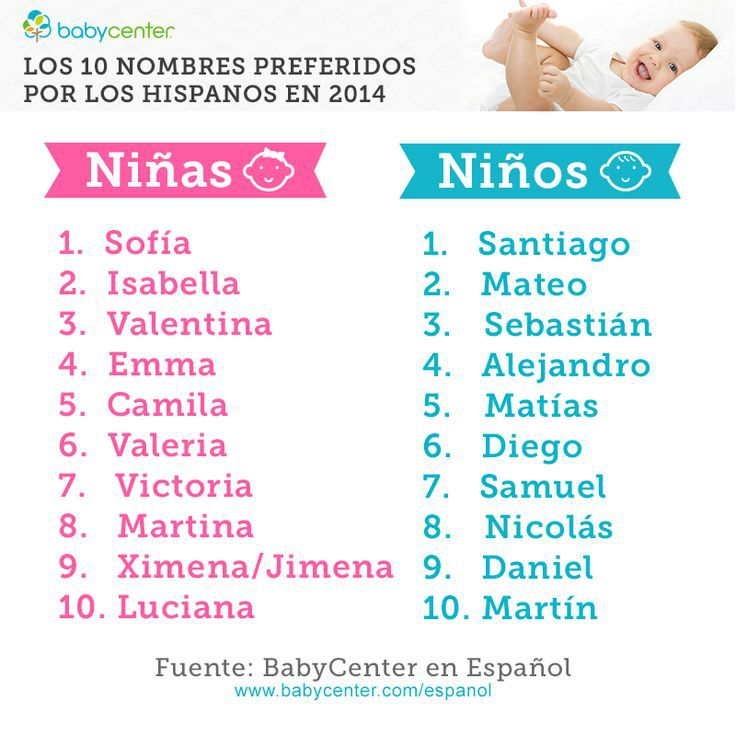 Cuando decidimos no seguir con la tradición familiar y elegir uno singular para nuestra hija, muchos padres nos preguntamos cómo elegir el nombre perfecto. Podemos fijarnos en nuestro lugar de procedencia, en algún idioma que nos llame poderosamente la atención (aunque ya sea una lengua muerta), en el sonido de una letra de la que nos atrae su fonema o incluso en nombres de mujeres que han tenido una gran trascendencia en la historia o, al menos, en la nuestra…
Cuando decidimos no seguir con la tradición familiar y elegir uno singular para nuestra hija, muchos padres nos preguntamos cómo elegir el nombre perfecto. Podemos fijarnos en nuestro lugar de procedencia, en algún idioma que nos llame poderosamente la atención (aunque ya sea una lengua muerta), en el sonido de una letra de la que nos atrae su fonema o incluso en nombres de mujeres que han tenido una gran trascendencia en la historia o, al menos, en la nuestra…
Y, entre todos ellos, existe un pueblo guerrero que, aunque se asentó sobre todo en el norte de España (Galicia, Asturias y Cantabria), dejó una profunda huella que aún se sigue palpando tanto en el Cantábrico como en Gales, Irlanda o Escocia.
Hablamos de los celtas, con nombres sonoros que apelan a la naturaleza, a los dioses, pero también a características de mujeres fuertes, valientes y hermosas. Sin duda alguna, el mejor primer regalo para nuestro bebé y que le acompañará toda su vida.
Ailish: es la variante celta de Alicia y significa “noble”.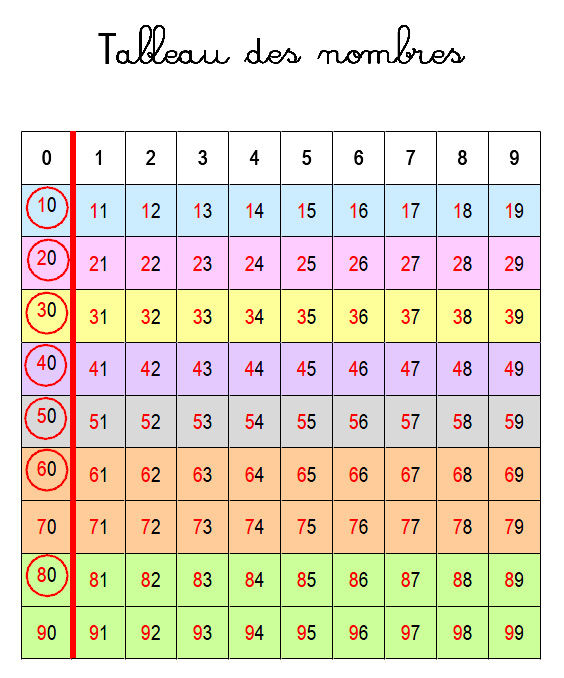
Aine: en la mitología celta este nombre se correspondía con el de la reina de las hadas. En gaélico significa “resplandor”.
Alanis/Alanys: variante de Alan y significa “preciosa”.
Alanna: gentilicio de los alanos, antiguo pueblo nómada originario de Escitia. Significa “bella, brillante”.
Alda: significa “la más bella”.
Aldara: nombre femenino de origen germano que deriva de Aldewara, “vieja sabia”.
Alina: significa “atractiva, graciosa”
Arlina: significa “promesa o compromiso”.
Arwen: significa “justa”.
Beltaine: significa “buen fuego” en irlandés. Su origen proviene de una festividad celta en la que se conmemoraba el comienzo del verano.
Brenda: variante femenina de Brand. Significa “espada, brillo de la lucha”. Muy común en Irlanda, ya que simboliza fuerza, triunfo y poder.
Significa “espada, brillo de la lucha”. Muy común en Irlanda, ya que simboliza fuerza, triunfo y poder.
Briana: significa “mujer fuerte o de gran fortaleza”.
Brianda: variante española del celta Brian, que significa “espada de Dios”.
Bricia: significa “fuerte”.
Brigid: diosa de la mitología irlandesa, que representa la fuerza y pasión del fuego y la poesía.
Brígida: parece provenir de la voz céltica ‘Briga’, que significa “fuerza, victoria”. También es uno de los miembros del panteón celta que personifica a la fertilidad.
Caeli: derivado de Kayley, significa “estrecha y delgada”.
Cartimandua: significa “elegante caballo”. Fue la última monarca de los brigantes (una tribu celta) antes de la conquista romana.
Cinnia: significa “hermosa”.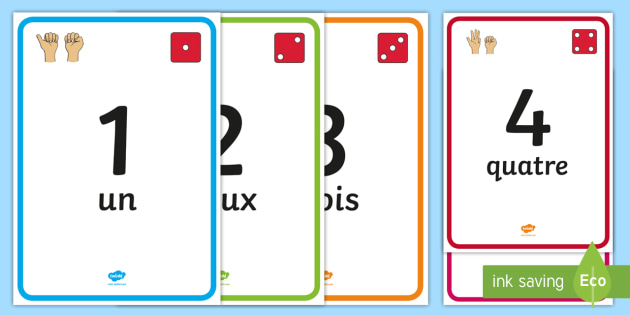
Cleissy: significa “reina de los bosques”.
Cordelia: significa “joya de mar”.
Donvina: significa “señora coronada”.
Drusila: significa “fructífera”. Era el nombre de una líder romana, hermana del emperador Calígula y su amante.
Eileen: es una variante de Helen que significa “bella como el sol”.
Éire: el nombre irlandés más antiguo para designar a Irlanda.
Eleonora: significa “que crece”.
Elvia: variante de Elba, significa “que proviene de lo alto de las montañas”.
Enedina: variante de Enid, que significa “alma, vida”.
Enya: significa “pequeño fuego”.
Enyd: significa “la que posee vida”.
Epona: es la latinización de nombre galo ‘epo’, que significa “caballo”. Es el nombre de diosa gala, protectora de los caballos.
Es el nombre de diosa gala, protectora de los caballos.
Erea: equivalente en castellano es Irene. Significa “mujer de paz”. En la mitología griega, Irene era hija de Zeus.
Evelyn: variante de Eva, que significa “agradable o grata”.
Finoa/Fiona: significa “la que tiene lindos cabellos”.
Ginebra: viene del galés ‘Gwenhwyar’, que significa “ola blanca, o blanca como la espuma del mar”. Es una variante de Genoveva.
Gladys: era el nombre de una importante gens romana y se utiliza en Gales desde el siglo VII, posiblemente derivado del latín Claudia, que significa “luz”.
Genoveva: significa “ola blanca, blanca como las olas, como la espuma”.
Glenda: significa “valle estrecho y boscoso”.
Gwendal: deriva del bretón ‘gwen’, que significa “blanco, justo, santo”.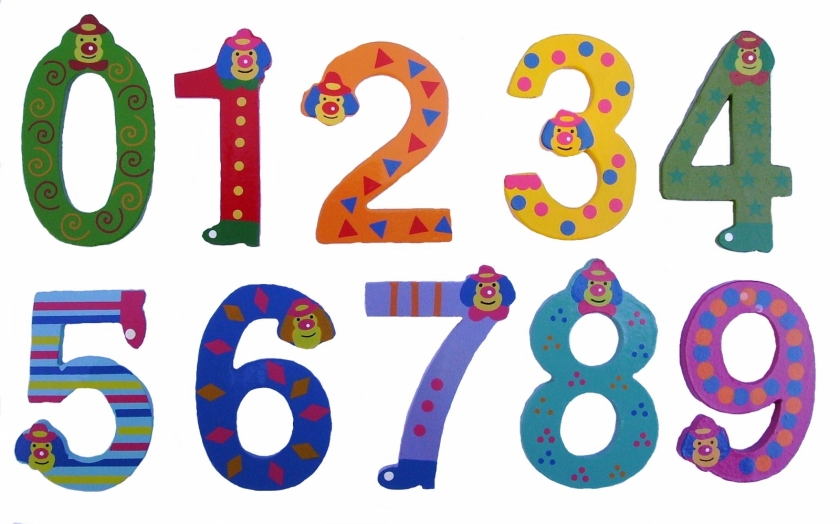 Aunque el gwen bretón es masculino, la gwen galés es femenina.
Aunque el gwen bretón es masculino, la gwen galés es femenina.
Gwendoline/Güendolina: variantes de Gwendolyn, que quiere decir “anillo sagrado” o “la de blancas pestañas”.
Hazel: significa “nogal o avellana”.
Iria: significa “tierra fértil”. Es el nombre de una antigua ciudad galaica, Iria Flavia, situada en Padrón, A Coruña.
Jennifer: variante de Ginebra y Genoveva. Significa “de gran espíritu”.
Julita: aunque es utilizado como diminutivo de Julia, no están relacionados. Era un nombre celta, que llegó a ser muy conocido por llevarlo santa Julita, mártir del siglo IV. No se conoce su significado original.
Kaile: variante del nombre celta Kayley, que significa “delgada, esbelta”.
Kelly: variante de ‘Ceallach’, significa “valiente”.
Kendra/Kandra: significa “gran campeona”.
Kennocha: significa “amante”.
Kiara: significa “la de pelo negro”.
Lenora: significa “que crece”.
Lesley/Lesly: significa “jardín sagrado”. Puede usarse también como nombre para niños.
Lynette: significa “ninfa, ídolo”.
Mabel: significa “alegre”.
Maeve: significa “que alegra enormemente”. Era el nombre de una mítica reina celta del siglo I.
Matrona: es el nombre de la diosa madre celta.
Meredith: significa “guardiana del mar”.
Moira: variante celta de María, que significa “elegida por Dios”
Mona: significa “mujer noble”.
Morgana: significa “la que viene de la orilla del mar”.
Morrigan: significa “la reina de los fantasmas”. Para los celtas irlandeses era la diosa de la guerra, que podía transformarse de mujer a animal y motivaba a los hombres para ir a la lucha.
Para los celtas irlandeses era la diosa de la guerra, que podía transformarse de mujer a animal y motivaba a los hombres para ir a la lucha.
Muriel: significa “mar brillante”.
Myra: forma de referirse al “mar”.
Myrna: variante del nombre gaélico Muirne, que significa “la que es amada, amable”.
Nealie: significa “la que gobierna”.
Noreia: era una región de Nórica y también una diosa para los Norici, una tribu celta.
Oona: significa “reina de las hadas”.
Orla: significa “princesa dorada”.
Rhiannon: fue una heroína galesa cuyo nombre significa “la gran reina”.
Saoirse: se puede traducir por “libertad”.
Shayla: significa “del palacio encantado”. También puede ser una variante de Sheila.
Sheila: significa “ciega, oculta”.
Shirley: significa “brillante”.
Suria: es el nombre de la diosa que hace fluir el agua en la mitología celta. También se puede escribir’Syria’.
Ula: significa “joya del mar”.
Wendy: hipocorístico inglés de Gwendolin, Güendolina, que significa “la de las blancas pestañas”.
Winefrida: significa “amiga de la paz”.
Yilda: significa “la que sirve a dios”.
Foto: Pixabay, Regina Zulauf
Temas
October 20, 2017
13 min.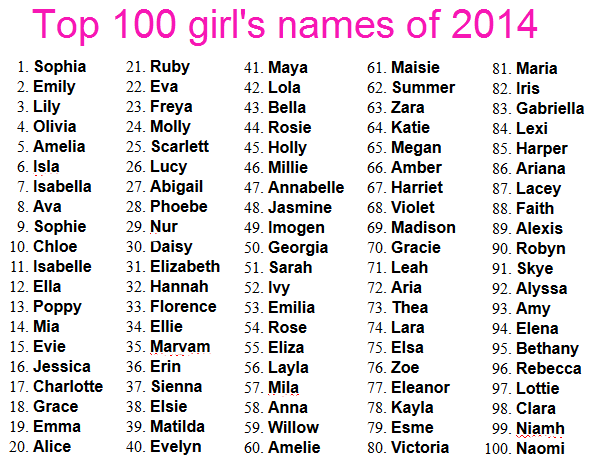 Read
Read
663148
Content of the article:
Choosing a cool but appropriate name for your child is not an easy task. After all, your child will live with him for the rest of his life! Many parents begin to rack their brains even before his birth, trying to foresee everything and agree on opinions, and even so that later, when the baby grows up, it would not occur to him to change his name. You need to choose wisely and without fanaticism, don’t forget this. Well, we bring to your attention interesting names in the USA. Check it
On the Nameberry website, you can not only find a special, cool and pleasant-sounding name, but also find out its true meaning and popularity.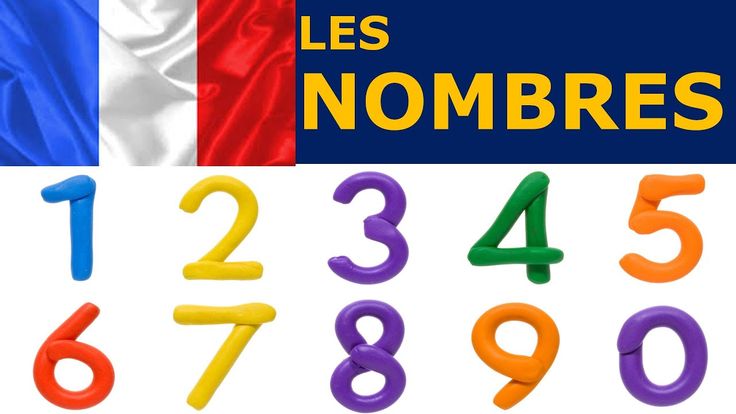 There’s also a great opportunity to check out a list of the decade’s hottest trends, whether you’re a trendsetter or a follower. So if you want to pick up beautiful foreign names, then here is a link and a whole article with a selection of options.
There’s also a great opportunity to check out a list of the decade’s hottest trends, whether you’re a trendsetter or a follower. So if you want to pick up beautiful foreign names, then here is a link and a whole article with a selection of options.
A name is a gift so meaningful, so powerful and personal that only you can select it for your child.
A name is a gift so significant, so powerful and so personal that only you can choose it for your child.
Names that begin with “ Ad ” or end with “ lee ” are some of the most popular names for children today. So running into a bunch of kids called Kinsley ( Kinsley ), Bentley ( Bently ) or even Adeline ( Addelyn ) is becoming more likely these days than, say, in the 50s. By the way, about them. Meet tons of Jennifer ( Jennifer ) or the Jasons ( Jason ) were far more likely than they are today.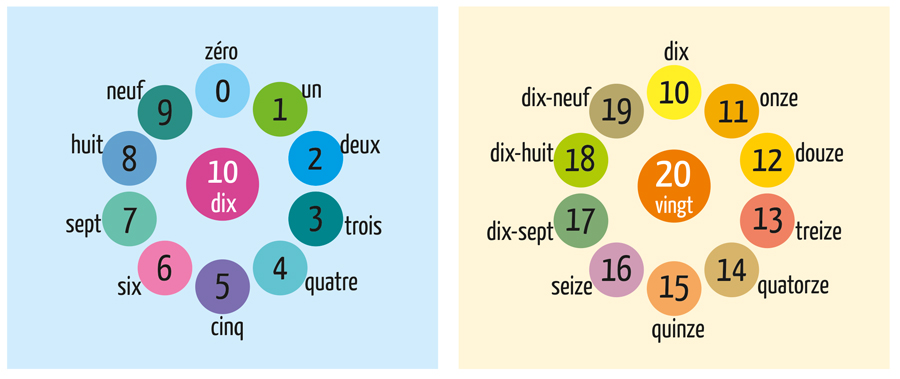 And now, children in the USA and Britain, unlike Russian names, are quite willingly given names of the so-called “superlative degree”. Get it? Well, for example, such as Legend, Royalty or King. Would you like this for yourself? Could pathetically declare to someone: “I am a legend!” and Will Smith himself would envy you. Hurry up to change before the names become boring, because they are becoming more popular every day!
And now, children in the USA and Britain, unlike Russian names, are quite willingly given names of the so-called “superlative degree”. Get it? Well, for example, such as Legend, Royalty or King. Would you like this for yourself? Could pathetically declare to someone: “I am a legend!” and Will Smith himself would envy you. Hurry up to change before the names become boring, because they are becoming more popular every day!
But naming trends are a fickle thing. You can even trace how children are massively named after popular stars: music performers, actors, actresses, athletes and others. This is clearly visible on the graph. Watch the video, which names were popular in the US over the years.
There are even celebrity names on the list of trendy baby names. These days, by naming your child Lennon, Monroe or Hendrix, you can take the whole world by storm! We believe that this trend should be followed. Why? Well…because paying homage to legendary stars can inspire your child to be the coolest kid in the world!
We don’t want to upset you, but Mother Murphy with her laws doesn’t mind at all.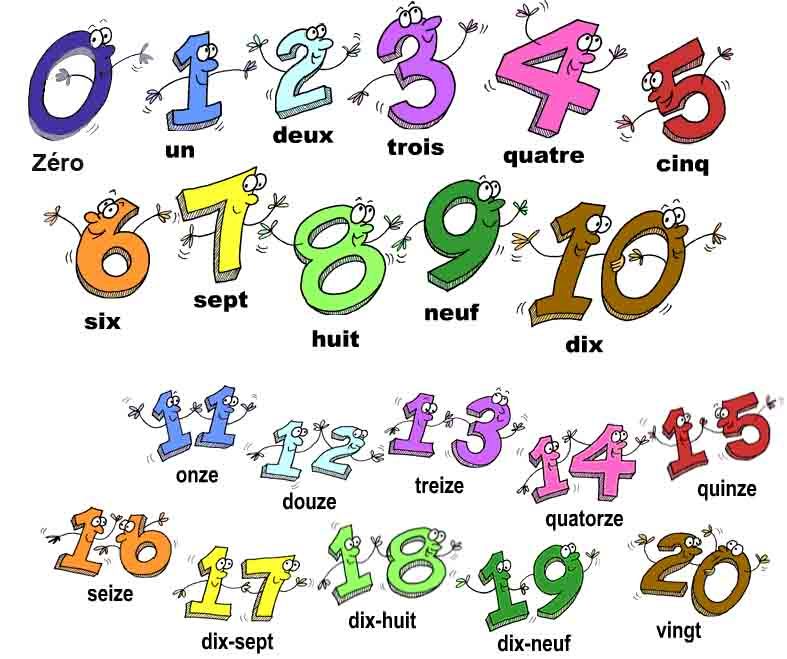 One of them, for example, reads: “No matter how harmless the name that you give the child, he will definitely be teased with this name.” So, name your child so that such a law does not come into effect. 917 to 2016. Over the past 100 years, for example, the name “ Michael ” still holds the lead (44 times), while the female name “ Mary ” over the years has become the leader 39 times.
One of them, for example, reads: “No matter how harmless the name that you give the child, he will definitely be teased with this name.” So, name your child so that such a law does not come into effect. 917 to 2016. Over the past 100 years, for example, the name “ Michael ” still holds the lead (44 times), while the female name “ Mary ” over the years has become the leader 39 times.
Read also
EnglishDom advanced products
Some names come and go, others listed below are “stuck” in the people thoroughly. They may not be No. 1 today, but they will certainly never fall out of fashion, as every day they strive to the top of the list.
English male names :
 The German name means “household manager” – “ ruler of the household ” or “household manager”.
The German name means “household manager” – “ ruler of the household ” or “household manager”. Common American names, masculine or feminine, it doesn’t matter, are of European origin. You have seen this by male names, and now see for yourself by looking at female ones.
You have seen this by male names, and now see for yourself by looking at female ones.
English female names :
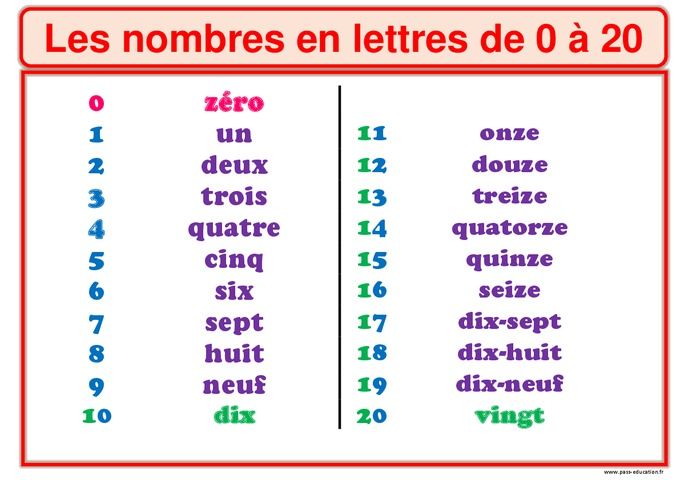
A unique name is chosen as a symbol of a unique, special child and family.
A unique name is chosen as a symbol of an exceptional, special child and family.
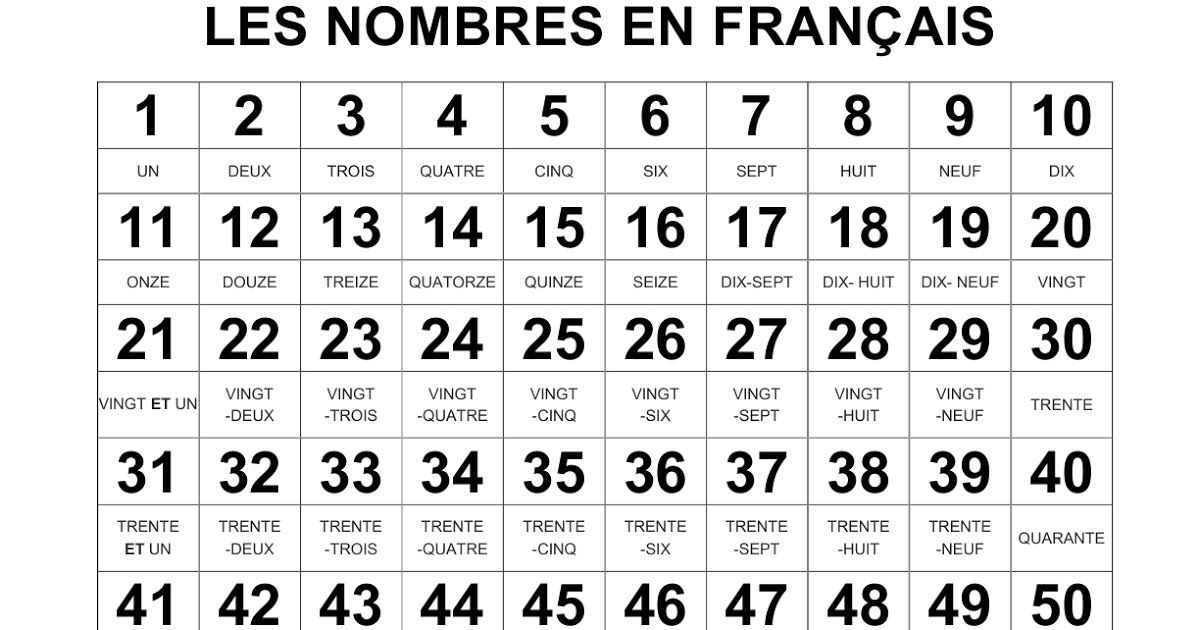
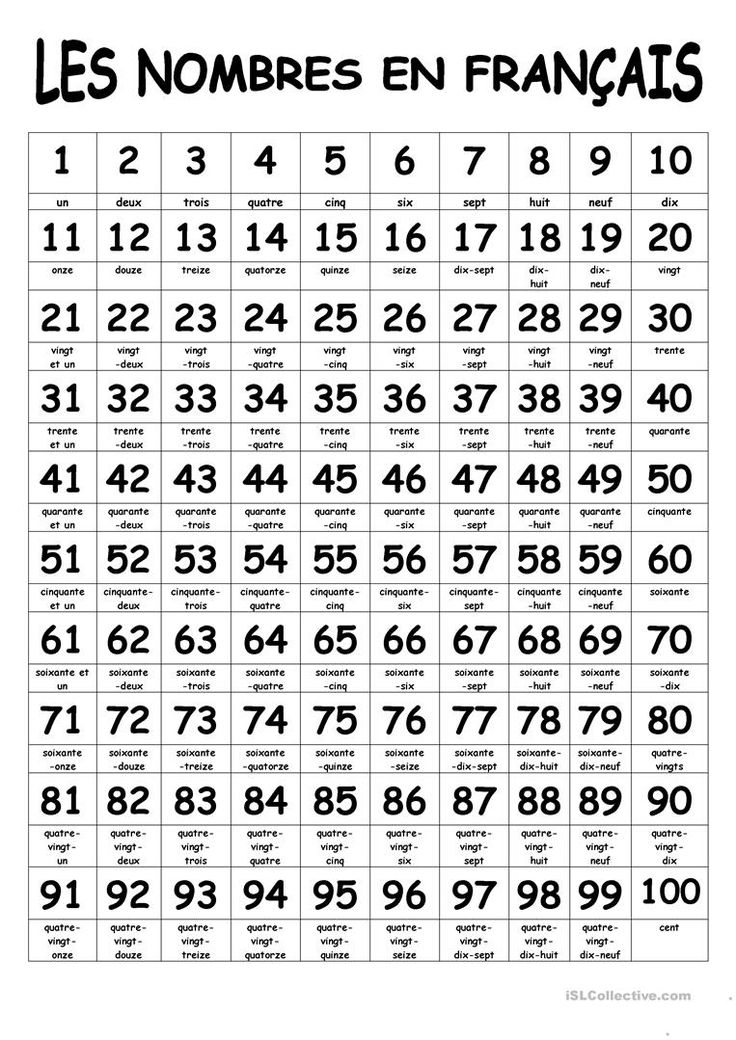
Since many parents are looking for a “unique” name, finding a truly unusual name can be extremely difficult, especially when it comes to girls. Historically, girls’ names have set the trend, while boys’ names have been more conservative. For example, while the most popular female name changes every 10 years, “Michael” has been in the top 10 for over 75 years. Due to this, there are more popular beautiful female names than male ones. In addition, many trendy “unusual” names for girls come from male names. So if you’re looking for something out of the ordinary, yet distinctly feminine, then you might need to dig deeper.
The names below were given to less than ten newborn girls each year. But, if you want your new addition to the family to stand out among Emma, Olivia and Sophia, feel free to choose one of the unusual names below for your little princess.
But, if you want your new addition to the family to stand out among Emma, Olivia and Sophia, feel free to choose one of the unusual names below for your little princess.
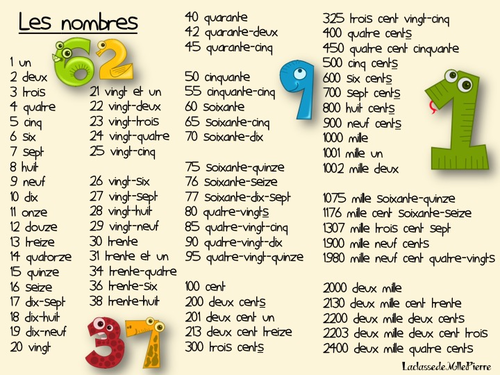 Not many parents name their daughters Sigourney. In fact, only 8 families chose it in 2016, but we know that this is the name of the winner (which, by the way, it means). Even Sigourney Weaver herself once admitted in an interview that she changed her first name to “Susan”, inspired by a character from F. Scott Fitzgerald’s novel The Great Gatsby.
Not many parents name their daughters Sigourney. In fact, only 8 families chose it in 2016, but we know that this is the name of the winner (which, by the way, it means). Even Sigourney Weaver herself once admitted in an interview that she changed her first name to “Susan”, inspired by a character from F. Scott Fitzgerald’s novel The Great Gatsby. 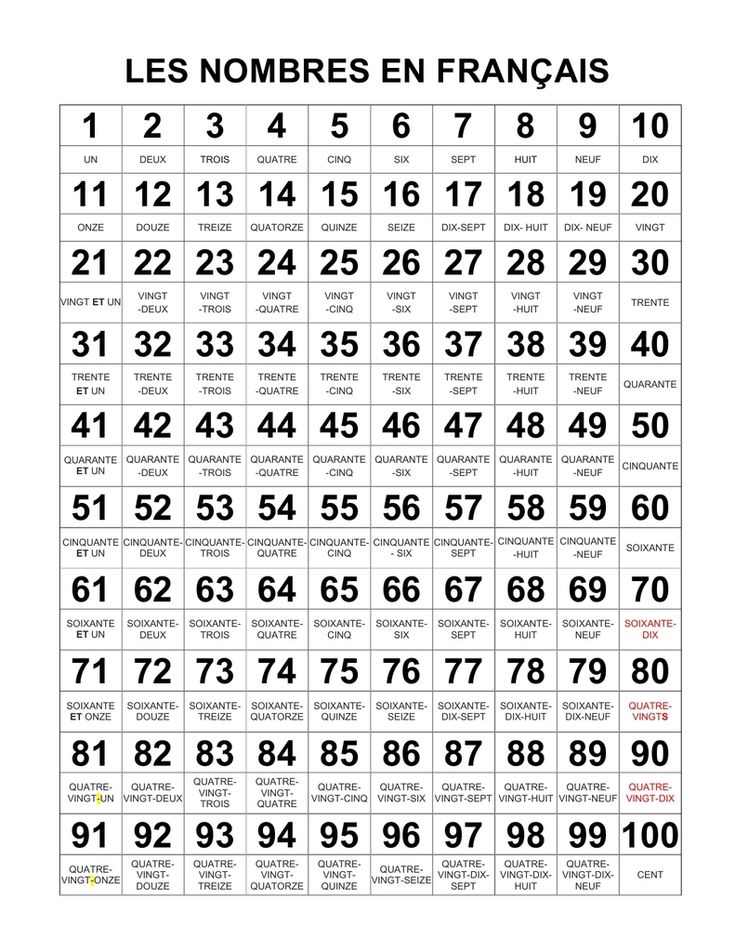 The brave and principled heroine of an often retold story in Greek mythology is right on target and even more than that. Although the name has been known throughout history, parents have made it a slightly unusual choice for their daughters – only 8 families named their daughters Antigone in 2016. We’d say “Tig” sounds pretty cute too. Girls with the name Antigone are distinguished by courage and independence. In childhood, this manifests itself in the form of pronounced self-will and excessive curiosity even for a child.
The brave and principled heroine of an often retold story in Greek mythology is right on target and even more than that. Although the name has been known throughout history, parents have made it a slightly unusual choice for their daughters – only 8 families named their daughters Antigone in 2016. We’d say “Tig” sounds pretty cute too. Girls with the name Antigone are distinguished by courage and independence. In childhood, this manifests itself in the form of pronounced self-will and excessive curiosity even for a child. How would your name sound in English
Many European names have common roots. And since American names are mostly the same European ones (English, German, French, Spanish, etc.), we can roughly compare the names in Russian and English.
Note that this magic conversion is only an approximation. You can try on an “American” name abroad if yours is difficult for foreigners to pronounce. However, the documents still indicate your name as in the passport, only in Latin.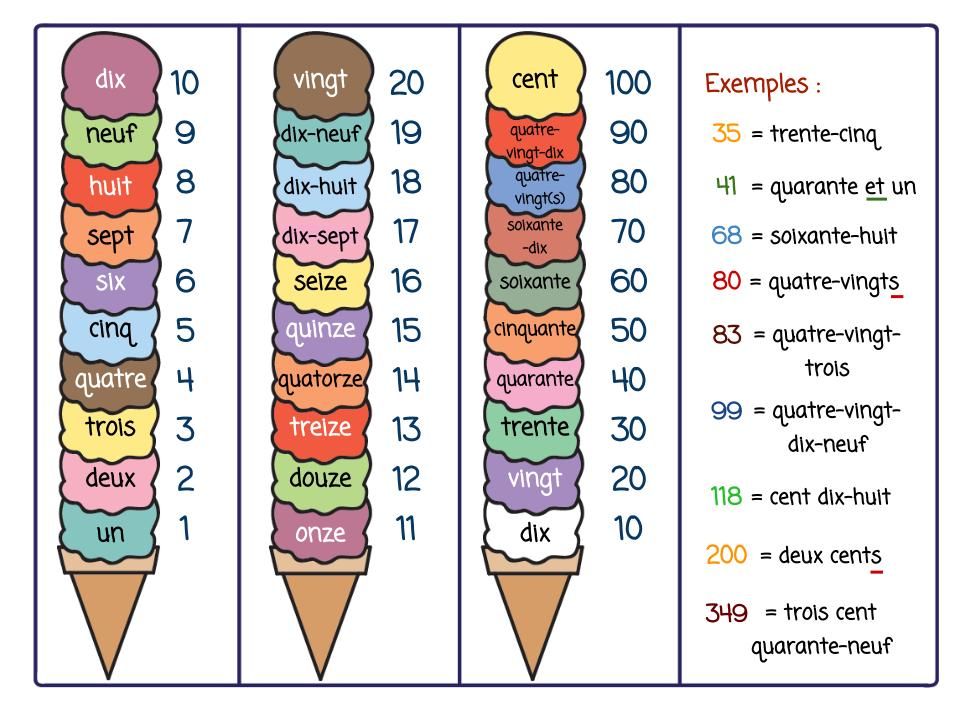 Read more in the article about transliteration of names in English .
Read more in the article about transliteration of names in English .
Alex
Read also
How to check the understanding of the heard English speech
If one name is not enough for you, you can try another way.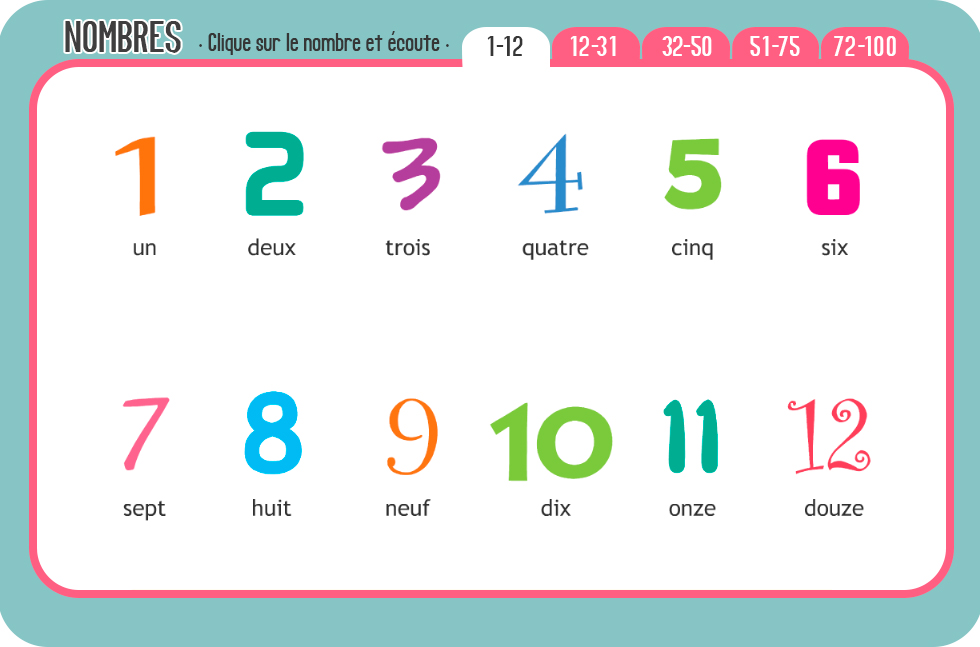 In fact, giving children double names is a relatively recent tradition. Until the 18th century, people managed with only one name and surname. For a long time, the source of names was mainly the only one – a list of saints and holidays in calendar order (church calendar). But there were quite a few variations on the themes of church names among the people: in English, the Latin form “Maria” was transformed into “Mary” (Mary), which, in turn, gave the diminutive “Molly” (Molly), and then “Polly” ( Polly). The name “Joannes” comes from the Hebrew. Jochanan, gave in medieval England the forms “Jan”, “Iohn” and “John” (John), as well as the diminutives “Jankin”, “Jackin”, and only then the popular name “Jack” (Jack). And the female form “Ioanna”, borrowed from the French “Jeanne” (Jeanne), turned into three independent names at once: “Jane” (Jane), “Jean” (Gene) and “Joan” (Joan).
In fact, giving children double names is a relatively recent tradition. Until the 18th century, people managed with only one name and surname. For a long time, the source of names was mainly the only one – a list of saints and holidays in calendar order (church calendar). But there were quite a few variations on the themes of church names among the people: in English, the Latin form “Maria” was transformed into “Mary” (Mary), which, in turn, gave the diminutive “Molly” (Molly), and then “Polly” ( Polly). The name “Joannes” comes from the Hebrew. Jochanan, gave in medieval England the forms “Jan”, “Iohn” and “John” (John), as well as the diminutives “Jankin”, “Jackin”, and only then the popular name “Jack” (Jack). And the female form “Ioanna”, borrowed from the French “Jeanne” (Jeanne), turned into three independent names at once: “Jane” (Jane), “Jean” (Gene) and “Joan” (Joan).
That’s all for now. If you suddenly decide to move to live in the USA and start a family there, then you will certainly know what to name your child!
Stay classy!
EngLishdom #inspirationalizing
Author
Andrey
Article rating:
Thank you, your voice Considered
settlement Numancia de lagra is located in Spain.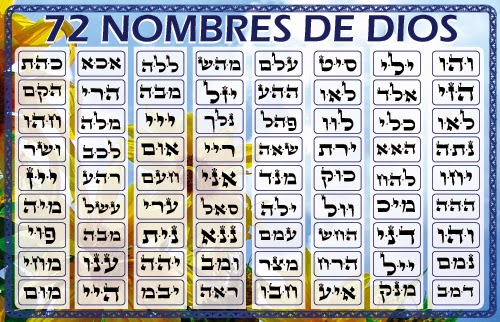
Archived
panoramio
. Photo rights belong to their respective owners
Numancia de la Sagra on Wikipedia
Numancia de la Sagra (Spanish: Numancia de la Sagra) is a municipality in Spain, part of the province of Toledo, part of the autonomous community of Castile-La Mancha. The municipality is part of the district (comarca) of La Sagra. It occupies an area of 29.63 km². The population is 4727 people (for 2010). The provincial capital is 33 km away. The original name of the city is Azaña. It received a new name in 1936 during the Spanish Civil War after it was taken by Francoist soldiers from the elite “Numantine detachment” (batallón de numantinos) created in Soria. The reason for the renaming was the association of the name of the city with the name of the Republican President Manuel Azaña, which the Francoists wanted to avoid. Saint Markos is considered the patron saint of the city.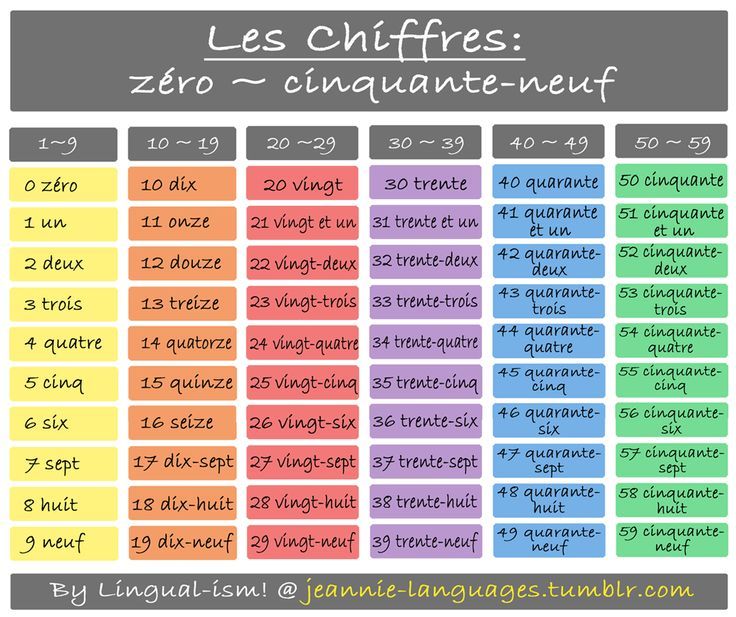
More details
All settlements
Castile – La Mancha
Restaurants, entertainment, taxis, hotels, attractions
Best
hotels
Search by name
By type
Check prices
All hotels
Photos Numancia de la Sagra
Add a photo
Have been to
Numancia de la Sagra and
did you take pictures of the city and interesting places?
Post them!
Many visitors to our site take photos on their trips.
Post your photos from
Numancia de la Sagra and from other cities!
Tag if you’ve seen these places too!
Now it is possible to add from the mobile version of the site,
which makes it much easier to transfer photos from
from smartphones to the site!
Souvenirs from Numancia de la Sagra
Add Souvenir
Were in
Numancia de la Sagra and brought souvenirs?
Show them to everyone! Fridge magnets, plates, pennants, mugs and everything you need
bring with you from business trips and trips to
Numancia de la Sagra!
Post and tag if you already have one!
Post their photo!
From the mobile version of the site, it is much easier to do this and transferring photo magnets from
Numancia de la Sagra from smartphones to the site will be more convenient!
Last reviews of Numancia de la Sagra
Add a review
Dear visitors of the website Komandirovka.